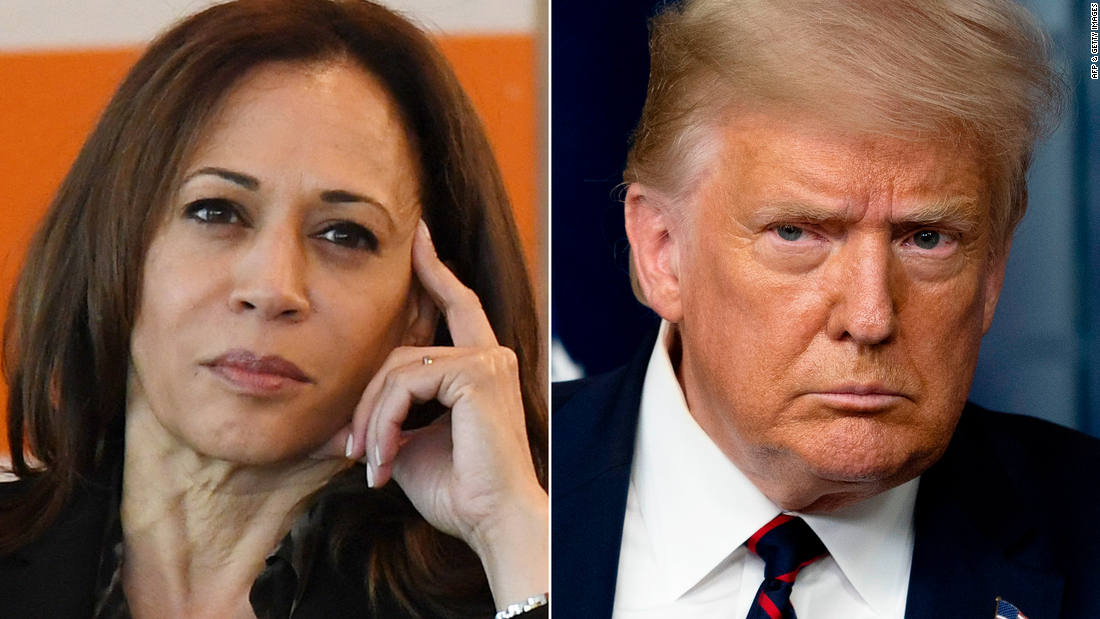In a debate that captured the world’s attention, Donald Trump and Kamala Harris faced off in a battle of ideologies, leadership styles, and narratives. The first presidential debate was expected to be a clash of facts versus rhetoric, but the outcome was far more complex. While Kamala Harris came armed with facts and sharp retorts, it was Donald Trump who managed to corner her on several critical issues, particularly when discussing foreign policy and economic management. One of the most striking moments in the debate came when the discussion turned to the controversial withdrawal of U.S. troops from Afghanistan. Trump seized the opportunity to criticize the Biden administration’s handling of the pullout, which he described as a “disastrous retreat.” Harris, standing in defense of the administration’s decision, struggled to counter Trump’s narrative. Trump emphasized his administration’s more cautious, phased plan for withdrawal, which he argued would have avoided the chaotic scenes that unfolded under Biden’s watch. His pointed critique resonated with viewers who still remember the harrowing images of the rushed evacuation and the subsequent destabilization in the region. On this point, Trump clearly floored Harris, who could not provide a compelling rebuttal to the stark realities presented by Trump. Trump further pressed his advantage on foreign policy by addressing the ongoing Russia-Ukraine conflict. He painted the Biden administration, and by extension Harris, as weak and ineffective in their diplomatic efforts, leading to prolonged conflict and economic repercussions for the United States. Trump’s argument centered on his claim that his administration’s approach would have deterred Russian aggression, an assertion that drew skepticism from some quarters but nonetheless highlighted a critical divide in foreign policy perspectives. Harris’s attempt to defend the Biden administration’s sanctions and support for Ukraine fell flat against Trump’s assertion that their policies have led to skyrocketing energy prices and inflation, affecting American households. For many watching, Trump’s narrative of strength and decisive action contrasted sharply with Harris’s more nuanced, diplomatic approach, making it difficult for her to reclaim ground on this issue.

Trump didn’t stop at foreign policy. He pivoted to domestic issues, making a bold accusation that President Biden received billions from China to allow the establishment of industries on American soil, allegedly at the cost of American jobs and economic stability. This claim, though lacking concrete evidence, served to amplify the narrative that the Biden administration was weak on China—a key talking point that Trump hammered repeatedly throughout the debate. While Harris tried to steer the discussion back to policy specifics and achievements, the accusation left a lingering impact. Trump’s strategy of questioning Biden’s economic decisions, whether grounded in full truth or not, played well with his base and likely resonated with undecided voters who are skeptical of America’s economic direction under current leadership. On immigration, Trump delivered a powerful message that seemed to echo with frustration across many American communities. He accused the current administration of encouraging illegal immigration, leading to what he described as a “border crisis” that has made normal life in the U.S. increasingly difficult. Harris’s attempt to humanize the issue and talk about comprehensive immigration reform was overshadowed by Trump’s direct appeal to voters who feel that illegal immigration impacts their jobs, safety, and community resources. Trump’s narrative here was clear and resonant: under the Biden-Harris administration, there has been a failure to protect American borders and prioritize the needs of American citizens. Harris, although well-prepared with policy details and humanitarian arguments, struggled to counter the emotional impact of Trump’s straightforward messaging. While Kamala Harris delivered a strong performance on several issues, her inability to effectively counter Trump on Afghanistan, the handling of the Russia-Ukraine conflict, and the allegations of economic mismanagement left her at a disadvantage. Trump’s aggressive stance and his strategy of keeping Harris on the defensive allowed him to dominate the debate on issues that resonate with voters concerned about national security, economic stability, and immigration. In this debate, Trump didn’t just rely on rhetoric; he tapped into the real anxieties and frustrations of the American electorate. Whether or not his claims are fully substantiated, his direct and assertive approach succeeded in framing the narrative and putting Harris on the back foot. For those looking for a leader who exudes strength and decisiveness, Trump emerged as the clear winner of this round.





